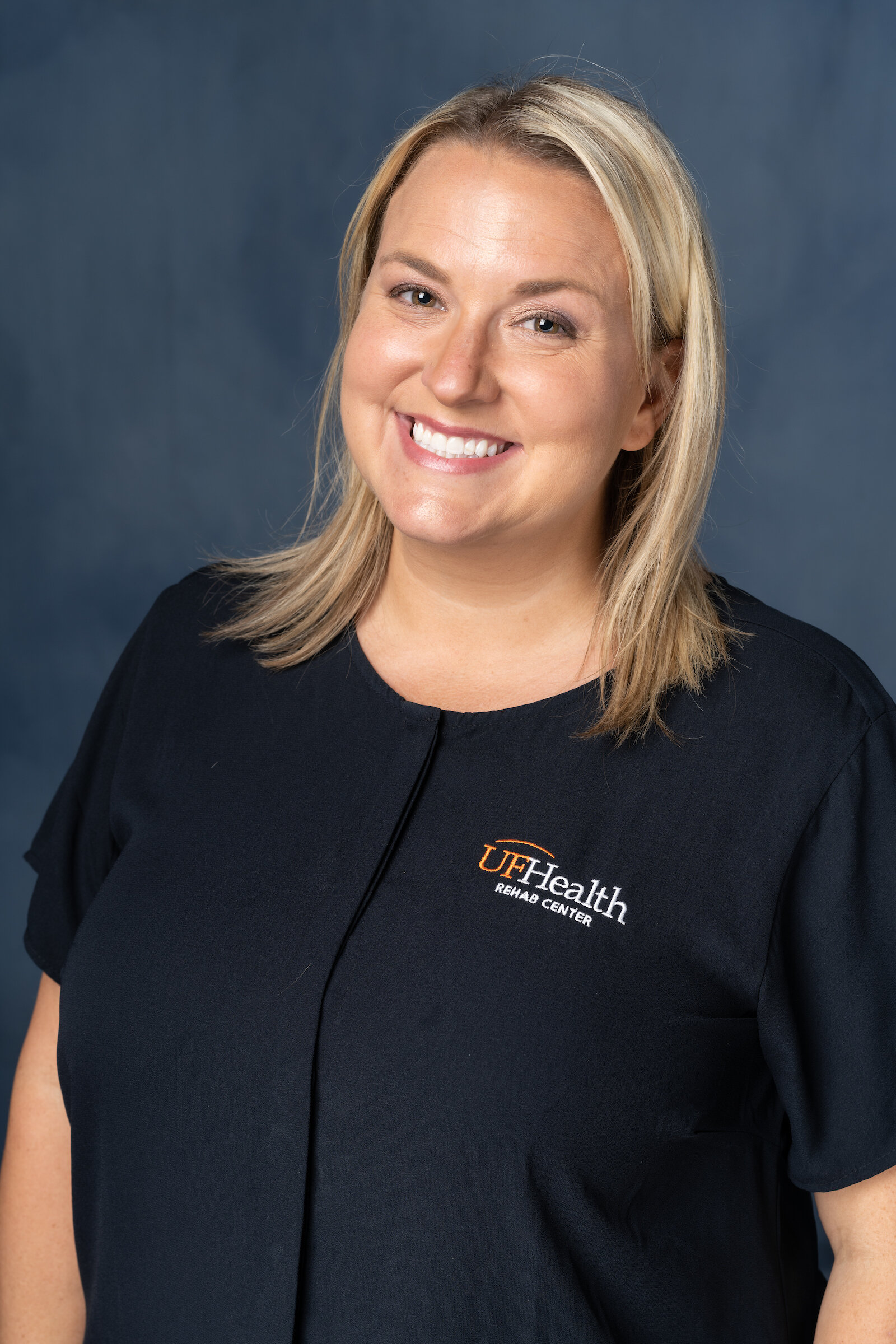Home safety tips and Parkinson's
Parkinson’s disease impacts both motor and nonmotor symptoms throughout the disease process. Symptoms like fatigue, gait difficulties, cognitive or vision changes can impact your ability to stay safe at home independently. However, some simple modifications around the house and some extra precautions can ensure that you stay safe, comfortable, and independent in your home for as long as possible. We had the pleasure of picking the brain of Dr. Heather Simpson an expert occupational therapist for some tips on this topic.
Heather Simpson graduated with a B.S. in Exercise and Sport Science in 2007 and her Master’s in Occupational Therapy (OT) in 2009, both from the University of Florida. She then went on to obtain a post-professional clinical doctorate from the University of St. Augustine for Health Sciences in 2017.
Heather current serves as an occupational therapist at the Norman Fixel Institute for Neurological Diseases at UF Health in Gainesville, Florida, where she has been since 2011. In 2020, Heather became a co-coordinator at the Parkinson’s Center of Excellence for the Institute focusing on PWP and care partner outreach, with a focus on the underrepresented populations.
Heather is a certified LSVT BIG® clinician, but has extensive training in the non-motor symptoms of PD including mood, cognition, vision and sleep in which she brings to her everyday practice with her work with those living with PD.
How Can I Find Out If My Home Is Safe?
With the increased popularity of smart home devices such as Google Home® or Amazon Alexa ®, making your home accessible and safe is becoming increasingly easier. With cognitive changes, smart home devices can provide additional support with daily living tasks such as remembering to take medication or even turning off the stove— if you tend to forget that task. With mobility changes, smart home devices can assist you with answering the front door quickly or even turning off the lights. Moreover, the Parkinson’s Foundation recently announced its partnership with Alexa® with the purpose to help people living with Parkinson’s increase information and resources, so Parkinson’s specific information is easily accessible via this smart device. For more information on how smart home devices can help you age in place successfully and AARP summarizes this in their article here.
Is There Anything That I Can Wear To Help Me If I
Were To Fall?
Gait difficulties due to mobility changes related to freezing of gait, shuffling steps, or posture changes can increase fall risk for people living with Parkinson’s. A fall is one of the most serious complications that you can experience— due to the potential risk of injury. Additionally, once you fall, for people with rigidity and difficulties with moving, often times, getting up off of the ground after a fall can be difficult, especially if you live alone. Luckily, there are many wearable devices available that can ensure that if you were to fall, you do not have to stay on the ground for a long period of time— but can quickly call for help. Some popular options include (but are not limited to) the Apple Watch with fall detection, smartwatches that connect to your cell phone, or medical alert buttons with fall detection.
Is There A Way to Store My Medical Information In
Case of An Emergency?
In case of an emergency at home, in which you were not able to respond to emergency medical services or able to respond to others, there are several resources and tools out there to help professionals understand your medical history and to ensure safety with your treatment. One of the more common methods is to obtain a medical alert card or purchase a medical alert ID from any of the retailers of your choice. Additionally, if you happen to have a smartphone, then your smartphone frequently comes set up with a Medical ID Health application on your phone. On this Health app, you are able to store your medical information, including allergies, medical diagnoses, precautions (such as deep brain stimulator), and even list an emergency contact. The nice part of this app is that emergency personnel have access even when your phone is locked— to ensure that your other information stored on your phone remains private. For more information on how to set up these apps, visit the iPhone app page or the Android app page.
What Happens If I Have to Go To The Hospital?
Research has uncovered that one in four people with Parkinson’s do not get their medications on time when staying overnight in the hospital— which leads to unnecessary complications. So, if there is ever an incident in which you would have to go to the hospital, the Parkinson’s Foundation has created the Aware in Care Kit which aims at combatting this problem. This kit comes stocked with a medical alert card, a nursing fact sheet and magnet, a hospital action plan book— and more. These kits are available online or free from your local Parkinson’s Center of Excellence.
To read more books and articles by Michael S. Okun MD check on Twitter @MichaelOkun and these websites with blogs and information on his books and http://parkinsonsecrets.com/ #Livingwith Parkinson’s #EndingPD #Parkinsonsecrets #LessonsFromTheBedside
He also serves as the Medical Advisor for the Parkinson’s Foundation.
To see more on Dr. Indu Subramanian she does live interviews of experts in Parkinson’s for the PMD Alliance.
The blog artist is Jonny Acheson.








